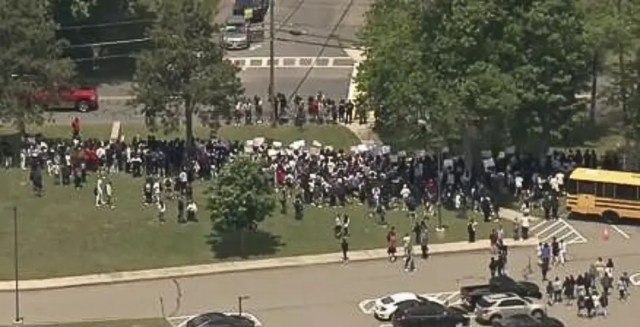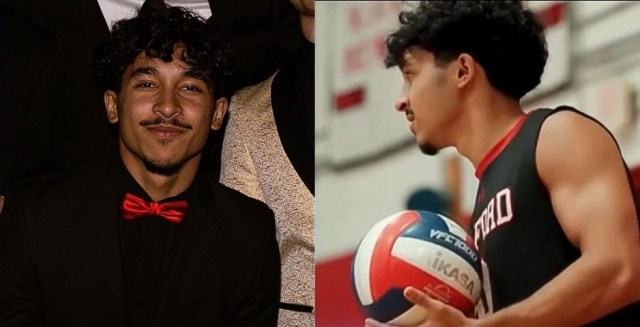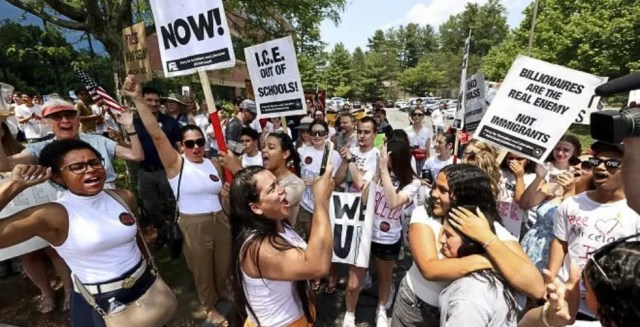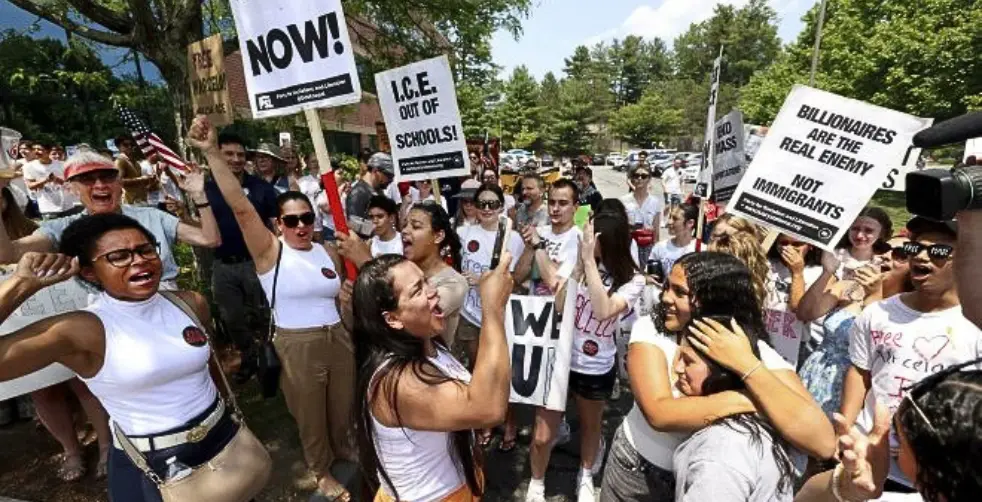It was a Saturday that could hardly have started more uneventfully. Marcelo Gomes da Silva, 18 years old, a student at Milford High School in Massachusetts, got into his father’s car to head to volleyball practice, just like so many times before. But this time, he never made it. He was arrested by agents from the U.S. Immigration and Customs Enforcement agency (ICE) in a parking lot – not because he had done anything wrong, but because his father was being targeted by authorities. The car was registered to his father. Marcelo was behind the wheel. And for ICE, that was apparently enough.


Marcelo came to the United States from Brazil when he was seven years old. He grew up in Massachusetts, became part of the school band, the church community, the volleyball team. A life like millions of young people lead in this country – except he didn’t carry the paper that could have protected him from a moment like this. Authorities said Marcelo wasn’t even the target of the operation. But because his student visa had expired, the agents took him into custody – without regard for age, context, or health. He spent three days in an overcrowded cell with 25 to 35 other men – no windows, no showers, just a cement floor. It wasn’t until Wednesday that he was brought to the hospital for a possible concussion he had suffered before the arrest.


Then on Thursday, a glimmer of hope: U.S. immigration judge Jenny Beverly at the Immigration Court in Chelmsford granted him a bond of $2,000. Marcelo appeared via video link – exhausted, but composed. His lawyer Robin Nice spoke of a young man “as clean as a Boy Scout,” deeply rooted in his community, a symbol of hope – and of a generation that has long found its place. Marcelo, she said, wanted nothing more than Snickers and chicken nuggets – a statement delivered with a smile that barely concealed the hardship of the past few days.
Outside, supporters wearing white T-shirts protested, and students at his school had already staged a symbolic walkout on Monday. Meanwhile, the government tried to move Marcelo to another federal facility on short notice – a move that was fortunately stopped immediately by the Federal District Court in Massachusetts. The presiding federal judge ordered that Marcelo could not be transferred out of the state without 48 hours’ notice to the court. The government has until June 16 to respond to the lawsuit challenging his detention as unlawful. The next hearing in his immigration case is scheduled for June 26, 2025.


Marcelo is not an isolated case. He is the face of hundreds of thousands of young people who grew up in this country but live every day in fear that a single encounter with authorities could upend their lives. His father, João Paulo Gomes Pereira, pleaded in a moving video: “We love America. Please bring my son home. It’s no family without him.” In Marcelo’s room, his sister spoke of movie nights together, chicken nuggets from the air fryer, the simple happiness that is now missing. “I miss everything about him,” she said.
And yet this is not just a story of helplessness. It is also a story of resistance. Of a school that stood behind one of its students. Of neighbors who protested. Of a legal system that – at least in parts – still works. Marcelo only wanted to go to practice. Instead, he became a symbol. Of an immigration policy that forgets the heart. Of a youth that is already fully American. And of a community that – if only for a moment – showed what solidarity truly means.
And perhaps that is what remains: the realization that hope is more than just a word. It begins where people refuse to give in – and instead take a stand. For someone who matters to them. And for an America that can be more than bureaucracy, deportation, and fear.
